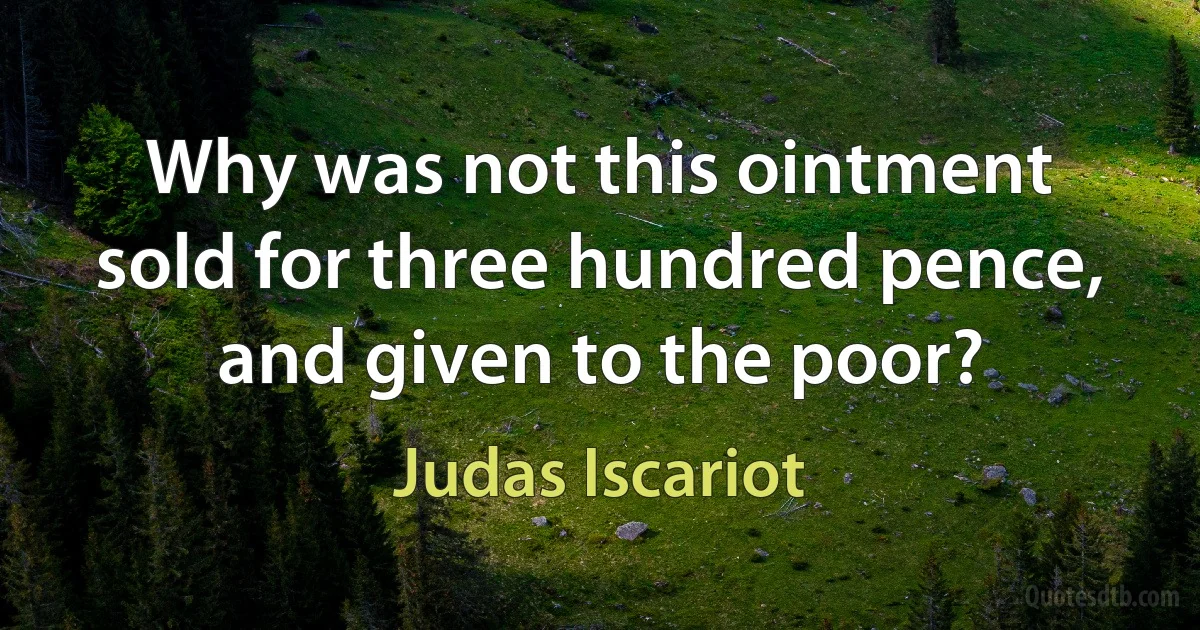Sold Quotes - page 16
We're saying that Germany wants to destroy us. And right now in Germany a whole lot of good quiet people like us, no worse than we are, they're getting whipped into a frenzy by the same story. They're being told the others are penning them into a country that's too small, and don't want to let them live. On one side or the other somebody's being sold a bill of goods. Maybe the Germans are wrong. We don't know. All I know is, I don't want to go killing some guy that never did me any harm, and who hasn't the choice but to do what he's told. I've got nothing against that poor guy. Why should I go and stick a bayonet into him? He wants to live, just like I do. He doesn't want to die.

Gabrielle Roy
The Sultan summoned the most religiously disposed of his followers, and ordered them to attack the enemy immediately. Many infidels were consequently slain or taken prisoners in this sudden attack, and the Musulmans paid no regard to the booty till they had satiated themselves with the slaughter of the infidels and worshippers of the sun and fire. The friends of Allah searched the bodies of the slain for three whole days, in order to obtain booty... The booty amounted in gold and silver, rubies and pearls, nearly to three thousand thousand dirhams, and the number of prisoners may be conceived from the fact, that each was sold for from two to ten dirhams. These were afterwards taken to Ghazna, and merchants came from distant cities to purchase them, so that the countries of Mawarau-n nahr, Irak and Khurasan were filled with them, and the fair and the dark, the rich and the poor, were commingled in one common slavery.

Mahmud of Ghazni
Abdulla Khan Uzbeg's force of 12,000 horse and 20,000 foot destroyed, in the Kalpi-Kanauj area alone, all towns, took all their goods, their wives and children as slaves and beheaded and ‘immortered' (fixed heads with mortar in walls and pillars) the chiefest of their men. No wonder he once declared that "I made prisoners of five lacs of men and women and sold them. They all became Muhammadans. From their progeny there will be crores by the day of judgement.”.

Jahangir
Actually I don't have any painting at home.... they take away everything from me, almost before it's finished... That Jewish scribe there, is sold to [Dutch art-seller] Buffa, and it isn't finished at all yet. And this 'Kolen lossen' is also sold... Then I have here 'The Mowers' - just set up... And that drawing here, will be a good piece too!.. That will become a large painting: a 'Jewish Wedding' - at the moment the groom puts the ring on the finger of his bride.... you can't see very much yet, do you? (translation from the original Dutch: Fons Heijnsbroek)

Jozef Israëls
Next year he [Muhammad of Ghor] defeated Jayachandra of Kanauj. A general massacre, rapine, and pillage followed. The Gahadvad treasuries at Asni and Varanasi were plundered. Hasan Nizami rejoices that in Benares which is the centre of the country of Hind, they destroyed one thousand temples and raised mosques on their foundations. According to Kamil-ut-Tawarikh of Ibn Asir, 'The slaughter of Hindus (at Varanasi) was immense; none were spared except women and children, and the carnage of men went on until the earth was weary.' The women and children were spared so that they could be enslaved and sold all over the Islamic world. It may be added that the Buddhist complex at Sarnath was sacked at this time, and the Bhikshus were slaughtered.

Muhammad of Ghor
But with the passing of time, a peasant became a tribal and from tribal a beast. William Finch, writing at Agra about 1610 C. E., describes how Jahangir and his nobles treated them - during Shikar. A favourite form of sport in Mughal India was the Kamargha, which consisted in enclosing a tract of country by a line of guards, and then gradually contracting the enclosure until a large quantity of game was encircled in a space of convenient size. "Whatever is taken in this enclosure” (Kamargha or human circle), writes Finch, "is called the king's shikar or game, whether men or beasts... The beasts taken, if man's meat, are sold... if men they remain the King's slaves, which he sends yearly to Kabul to barter for horses and dogs: these being poor, miserable, thievish people, that live in woods and deserts, little differing from beasts.”89 W. H. Moreland adds: "Other writer (also) tell it besides Finch.”.

Jahangir
The following anecdote is related of Sultan Shamsuddin Iltutmish. He was greatly enamoured of a Turkish slave girl in his harem, whom he had purchased, and sought her caresses, but was always unable to achieve his object. One day he was seated, having his head anointed with some perfumed oil by the hands of the same slave girl, when he felt some tears fall on his head. On looking up, he found that she was weeping. He inquired of her the cause. She replied, "Once I had a brother who had such a bald place on his head as you have, and it reminds me of him.” On making further inquiries it was found that the slave girl was his own sister. They had both been sold as slaves, in their early childhood, by their half-brothers; and thus had Almighty God saved him from committing a great sin. Badaoni states in his work, "I heard this story myself, from the emperor Akbar's own lips, and the monarch stated that this anecdote had been orally traced to Sultan Ghiyasuddin Balban himself.”.

Iltutmish
Herbert Casson was a highly prolific writer on management, with a career as a management guru spanning some four decades. A skilled writer who was also a successful entrepreneur, he used his own experiences and acute observations of the world around him to develop a philosophy of management based on the concept of ‘efficiency'. He published more than seventy books, which by the time of his death had sold more than half a million copies around the world. Something of a maverick, he was never really accepted by the business academic community in either Britain or America. His books were popular and populist, highly entertaining and full of penetrating insight.

Herbert N. Casson
At the time of Muhammad bin Qasim's invasion of Sindh the head of the State was the Caliph and prisoners taken in Sindh were regularly forwarded to him. Kufi, the author of the Chachnama, rightly sums up the position. Out of the total catch, four-fifths was the share of the soldiers, "what remained of the cash and slaves was... sent to Hajjaj (the Governor of Iraq )” for onward transportation to the Khalifa. In such a situation any special acquisition had to be paid for in cash. Muhammad bin Qasim who wished to possess Raja Dahir's wife Ladi, avers the Chachnama, "purchased her out of the spoils, before making her his wife.” But the price he paid is not mentioned. Similarly, when Hajjaj sent 60,000 slaves captured in India to the Caliph Walid I (705-715 C. E.), the latter "sold some of those female slaves of royal birth”,5 but again their price has not been specified.

Muhammad bin Qasim
Then the young samurai's mother had the child sold to a brothel, where she swept the floors and oiled the women and watched the secret ways. At age ten the madam put the child in a cage with a bear trained to couple with young girls so the girls would be frigid and not fall in love with their patrons. They fed her through the bars and aroused the bear with a stick when it seemed to lose interest. Groups of men paid to watch. Like other girls who have been trained this way, she learned to handle many men in a single night and her skin turned a milky white.

Scooter Libby



